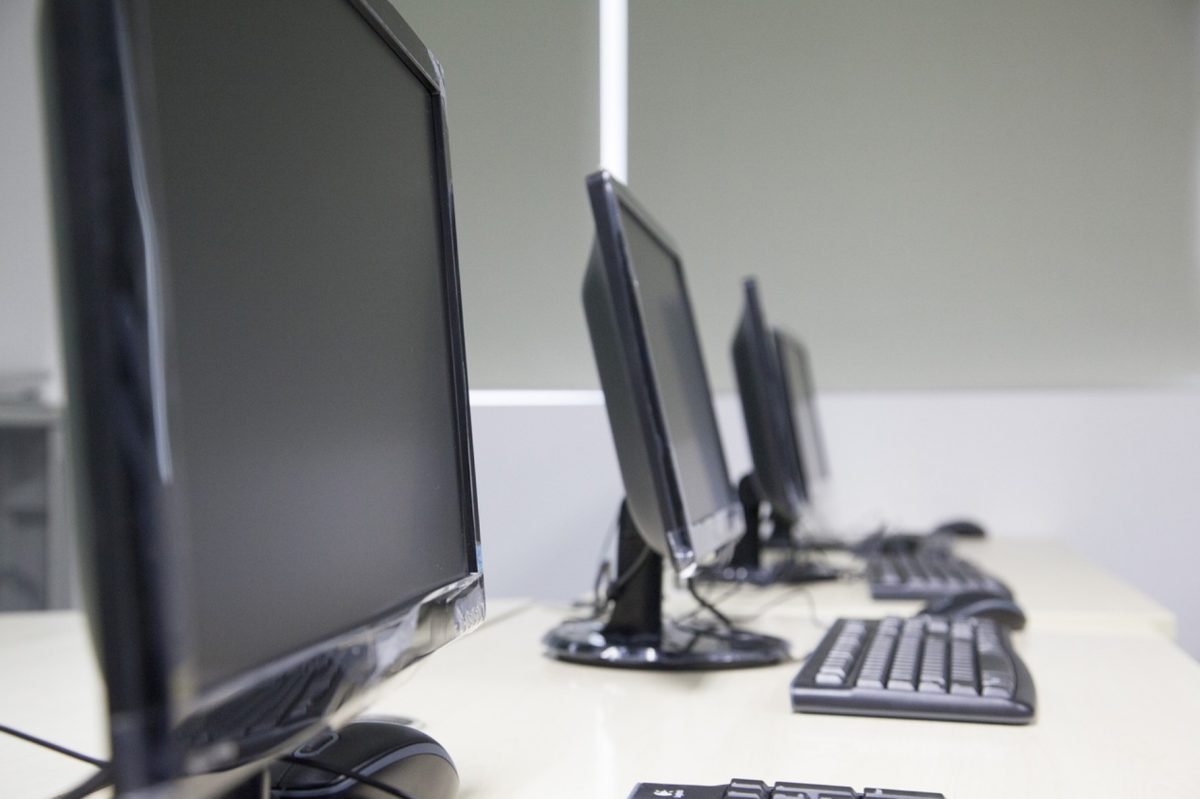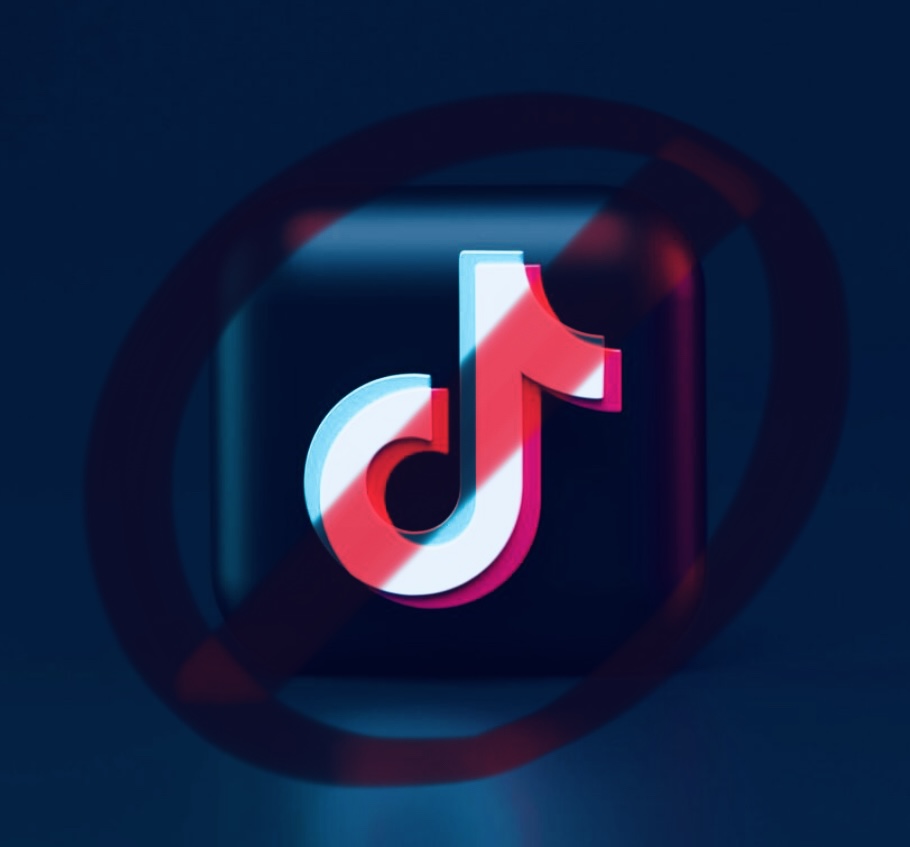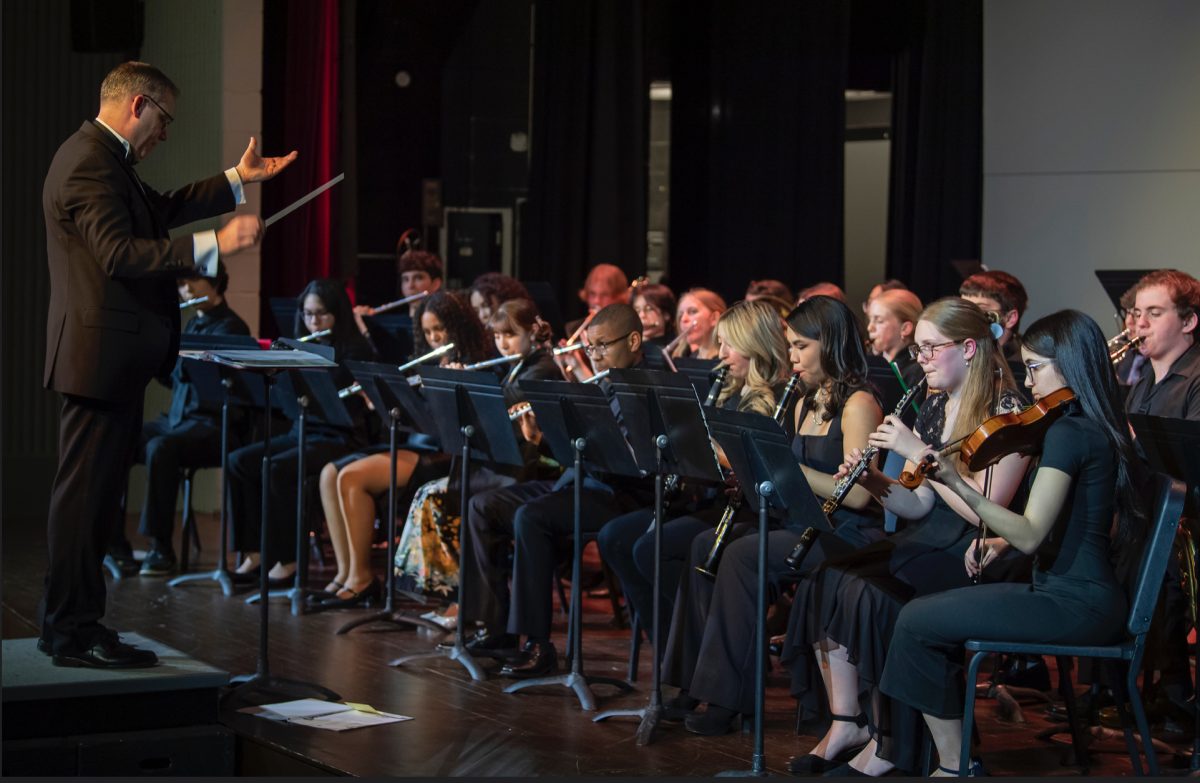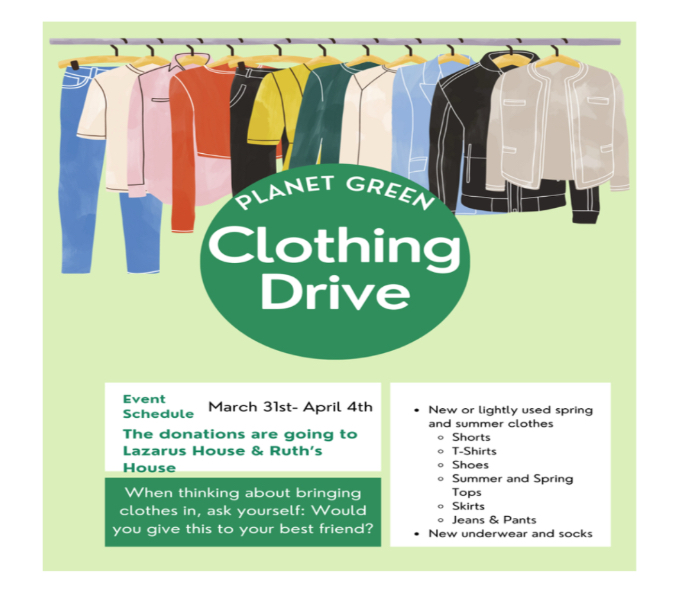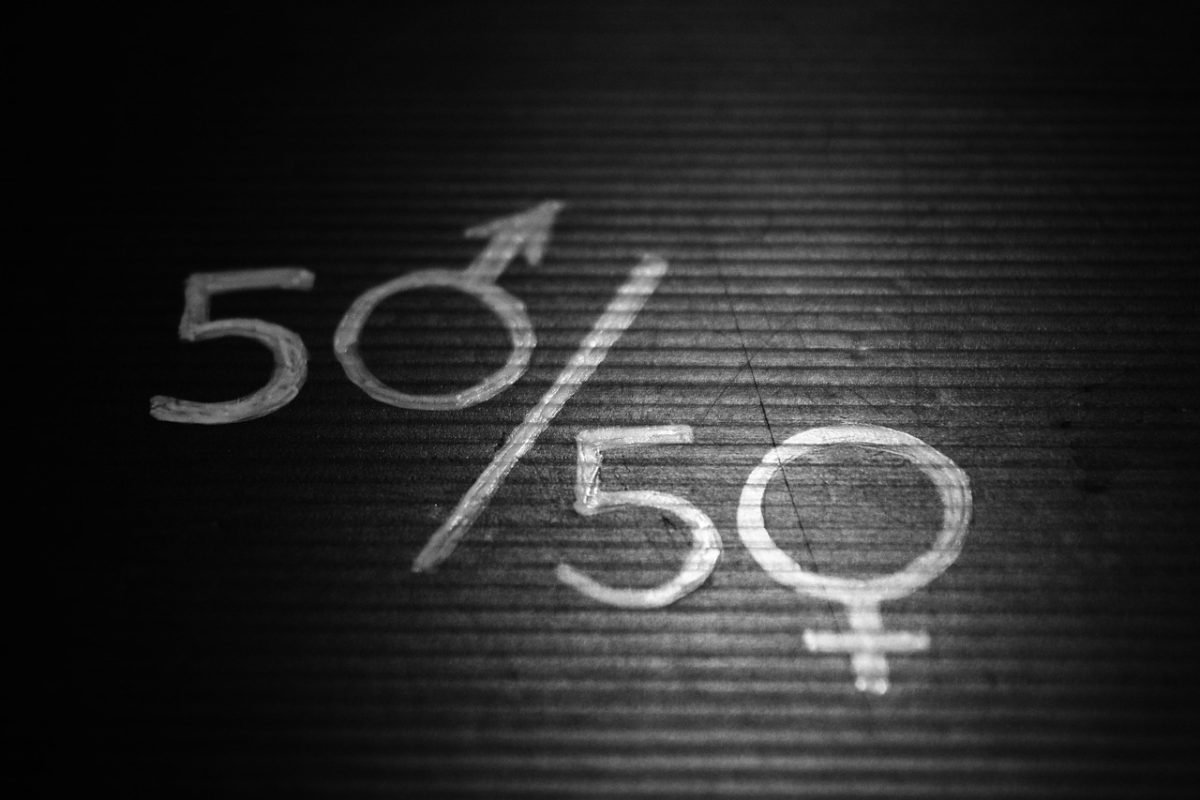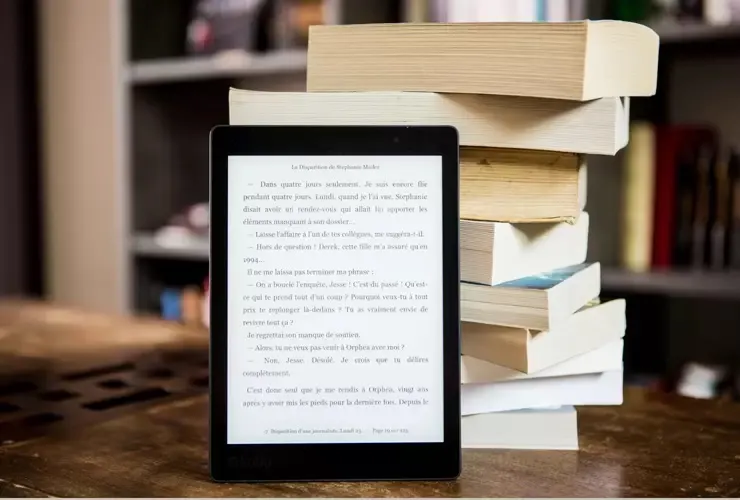By Fope Ayo ’26
August rolls around and the textbook page for Central Catholic is up and running. You click the link, go to the textbook website and look for your courses. You get to your history class and it gives you the option to get the paper textbook or the eBook. Which should you choose…?
The ongoing debate about whether paper books are better than e-textbooks is something that teachers, students and parents struggle with every school year. Which is more convenient? Which is cheaper? Which one will help students learn better? All of these questions must be considered when choosing your textbooks for the year.

Source: Medical News Today
What is an eBook?
An eBook, or electronic book, is a text turned into a digital format that can be accessed by an electronic device. EBooks aren’t editable which protects the author’s work. EBooks have become increasingly popular and have been incorporated into schools’ curriculums because of their convenience and ease on parents’ wallets.

Paper books have been around for millennia. Paper books can be dated all the way back to 2400 BC when the Egyptians used papyrus scrolls- ancient versions of paper made from the papyrus plant. Students continue to use some paper books such as those required for English. While ebooks are becoming more popular, more paper books are still produced annually, indicating that paper books are here to stay… for now.
At Central Catholic, books are naturally an important part of students’ lives. When asked how much his students use books, Mr. Joe Lynch, CCHS history teacher stated: “Often…for my AP U.S. history classes, we use it daily.” For Central Catholic sophomore Aniela Kwo, the majority of her classes use eBooks, whereas for CCHS freshman Keysha Cantos, “It’s a good mix. Some use paper and some use ebooks.” While each type of text has its pros and cons, does one have more benefits than the other?
Convenience
When it comes to convenience, eBooks have a lot of benefits. For starters, they’re portable. You can take them anywhere, without worrying about the extra weight. “For one of my classes, we still use a paper book, and it’s very big and very heavy” Mr. Lynch stated. Students also don’t have to worry about damaging the book when they carry it.
With eBooks, students can also easily switch between their books and their homework on tablets. However, when the homework is on paper, it may be easier for students to go between their papers and a physical book instead.
Visual Appearance
EBooks are also more visually appealing. In many online books, the font size isn’t fixed so you can change the size to make it easier to read. Electronic books can also be read in any lighting.

Often, digital books have additional features like interactive reviews and videos. “For example- anything dealing with three dimensionality,” Mr Lynch said. “So if you want to look at something like a molecule or a DNA strand, the ability to manipulate it in three dimension[s] is pretty significant. As a history teacher, geography, I find, is better taught digitally.”
Cost
Cost is a big issue when it comes to buying a textbook. Online books are generally cheaper than printed books. Mrs. Doreen Prisby, a Central Catholic history teacher, stated that ebooks are more cost efficient. This is in fact true. “A book that might be $100 new to buy, is $20 to rent digitally,” Mr. Lynch explained. The average textbook cost ranges between $80-$100, whereas the average ebook, according to Educational Data Initiative, costs 31.9 percent less than its physical version.
Reliability
One of the major benefits of printed books is that they are reliable. EBooks, which depend on your WiFi and data, are finicky, and cause teachers to have to go through different hacks and loopholes to get the books working. “I would argue that publishers of most [digital] textbooks have not caught up with the idea of being user friendly”- Mr. Lynch.
Engagement
The student’s level of engagement is one of the most important factors of textbooks. When asked, Mrs. Prisby stated that “[students] perform worse on reading when it comes from the ebooks than paper books.” A lot of times, when students read books online, it seems that they retain less information than if they had read a printed book. “I think kids have a hard time remembering what they see on their iPad, as being real literature,” Mrs. Prisby said. “They just get lost in scrolling, that they don’t get the bigger picture.”

Mr. Lynch had a similar opinion. “I do think sometimes digital books present a challenge because students engage it the same as social media or anything on their screen. There’s an ease in scrolling through an eBook, and missing what your teacher is asking you to find in that text…What I see is kids using their books and literally engaging them and literally flipping through them the same way they would engage their feed.”
When asked, Central Catholic Students also echoed Mr. Lynch’s experience with their own endorsement of paper books..
Tyler Gilman, a CCHS freshman, said: “I [get] lost a lot easier when I can’t see the words and digest them myself.”
“I feel like they [paper books] are easier to process,” Keysha stated in her interview.
“I think holding a book and being able to feel the texture of the pages enhances the reading experience,” Central Catholic’s freshman Sophia DeFillippo said.
Samantha McGee, a Central Catholic senior said: “It is more satisfying to have a tangible thing to hold, especially in terms of books”
According to The Hechinger Report, of the 33 studies that were compiled, 29 showed that students learned better with paper text especially when it’s non fiction. However, there is still not enough research and studies yet on the topic to determine if paper is officially more beneficial than eBooks.
Online books also allow for many distractions. Students’ digital books are on their iPads, and so are all these other apps that send them notifications and alerts. This could make it harder for students to concentrate on their reading. “With ebooks, there’re a lot of distractions,” Central sophomore Aniela Kwo stated. “But with paper books, it’s just me and the book”.
So…Which is better?
While these points are generally true, they are not necessarily the truth for everyone, especially at Central Catholic. Out of the 314 students who were polled at Central, 59.2 percent of the students do prefer paper books compared to the 36 percent who prefer digital and the 4.8 percent who are indifferent. However, when it comes to how distracting electronic books are, 57.3 percent said that they were not distracted by digital books. This could be the result of an unknown bias where students aren’t aware of the fact that they are distracted by eBooks in some form. 70.3 percent also said that paper books were not inconvenient for them. But, over half of the students reported that they believed that paper books had more benefits than eBooks did.


In the end, when choosing an eBook, you have to look at the advantages and disadvantages of each, and determine which one is best for you.


